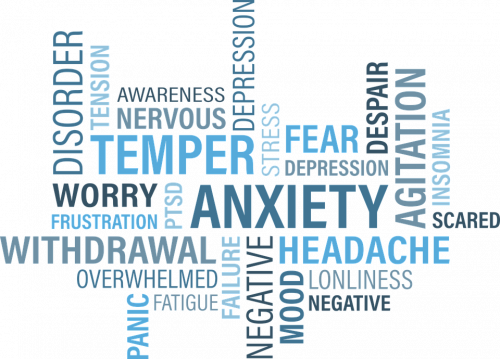“In the almost 2,000 patients surveyed, perception of their own health correlated most with pain – a symptom that has increasingly been recognized in MS, but is not even part of most standard MS measures of disability. The second most linked symptom with patients’ perception of their health was walking ability, followed then by fatigue.” This statement came from Lauren Krupp, M.D., and Robert Charlson, M.D.
Dealing with the symptoms of multiple sclerosis or MS is complicated because of its link to many psychiatric issues. It causes a swirl of different moods due to the deterioration of the nerves. The disease may let the patient feel anxiety, depression, anger, and stress. However, it is not impossible to deal with these emotional mood swings with the help of a good doctor, proper medication, and self-discipline.
One of the ways to deal is to talk to licensed experts at BetterHelp. They also have Twitter and Instagram. The platform is discreet and offer a nonjudgmental ear.

How To Cope With Depression Caused By Multiple Sclerosis
It is not a hidden fact that MS may cause depression as the disease attacks the nerve membranes which transmit impulses in the brain. Sadly, MS is an incurable disease. However, there are many ways to treat depression resulting from MS. A lot of doctors will recommend the use of antidepressant drugs with a specific therapy. The therapy may consist of consulting a psychiatric professional or group therapy sessions with other individuals with MS depression.
How To Cope With MS Related Stress

MS has psychiatric effects that can increase your stress levels due to the obscurity of the symptoms and its constant changes. However, there are many ways to relieve and lessen stress. Therapists will usually teach MS patients the breathing techniques and relaxation methods to ease the mind. Exercising can also aid in reducing stress levels. However, a patient needs to have the opinion of a medical professional for any rigorous exercising to avoid any movement that may trigger MS symptoms.
Anger Management For MS Patients
The frustration from MS and the effects of the disease can cause anger spikes in your mood. Releasing these may help relieve stress. However, doing it over the top can also enhance the symptoms. It is why patients need to keep their anger in check.
Make a plan on how to keep yourself calm and ask yourself about the things you can do to keep it stable. Additionally, you can find other ways to prevent anger spikes from happening.
Other Things You Can Do To Handle MS

“Finding balance of depending on our mate and depending on ourselves is what allows healthy attachment to form,” says Margarita Tartakovsky, M.S. Your wife doesn’t want this disease, but the effects of it changes her physical and mental wellnes.
Relax – Relaxing the mind has an excellent effect in reducing the mood changes in MS. It will lessen the symptoms from flaring up. You can try different activities such as reading books, learning breathing exercises, doing yoga, listening to music, and more. Every individual is different, so it is imperative to know what kind of relaxing activity works for you.
Get Professional Help – Consult a medical professional if you notice that the mood swings are making it difficult for you to handle your work, friends, and family. There are many ways to control the emotional effects of MS and doctors will provide the therapy or medication that is suitable for your situation.
An individual with multiple sclerosis may experience a lot of mental illnesses associated with the disease. As far as psychiatry is concerned, the necessary treatments are required to help the patient live his life normally despite the mood swings. Family members should also practice patience regarding a loved one suffering from MS. It is advisable to be prompt in treating MS and prevent its progression.
“If you are a support partner of someone with MS, watch for signs of depression and anxiety both in your loved one and in yourself. They may not always be obvious and can often look like irritability, anger or a growing detachment from social life,” says Meghan L. Beier, M.A., Ph.D.